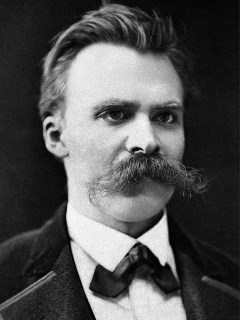
Publication details
Year: 2015
Series: European Journal of Pragmatism and American Philosophy
Full citation:
, "Nietzsche, Dewey, and the artistic creation of truth", European Journal of Pragmatism and American Philosophy 7 (1), 2015.


Nietzsche, Dewey, and the artistic creation of truth
in: The pragmatist method, European Journal of Pragmatism and American Philosophy 7 (1), 2015.
Abstract
My paper focuses on the following famous passage from Friedrich Nietzsche’s “Truth and Lying in a Non-Moral Sense”: “What, then, is truth? A mobile army of metaphors, metonyms, and anthropomorphisms” (OTL 1). I will show that John Dewey entirely agrees with this statement. Dewey and Nietzsche has a rich and novel understanding of metaphor, metonymy, simile, and such that they use to comprehend the creation of linguistic meanings, the identity of things, the creation of objects (essences, eidos, etc.), cause and effect, free will, and necessity as serving anthropomorphic purposes. My conclusion presents Dewey as a gay scientist joining Nietzsche in making creative use of the genetic method. The result of is a surprisingly poetic and rhetorical interpretation of Dewey that should not astonish anyone who reads him carefully. We arrive at this radical reading of Deweyan pragmatism by a metaphorical transfer from Nietzsche as the more familiar source domain to Dewey as the target domain. All along the way, things will fall into place if we carefully distinguish our anoetic experience of existence from the cognitive linguistic meanings, identities, and essences we create from our experience of existence.
Cited authors
Publication details
Year: 2015
Series: European Journal of Pragmatism and American Philosophy
Full citation:
, "Nietzsche, Dewey, and the artistic creation of truth", European Journal of Pragmatism and American Philosophy 7 (1), 2015.


